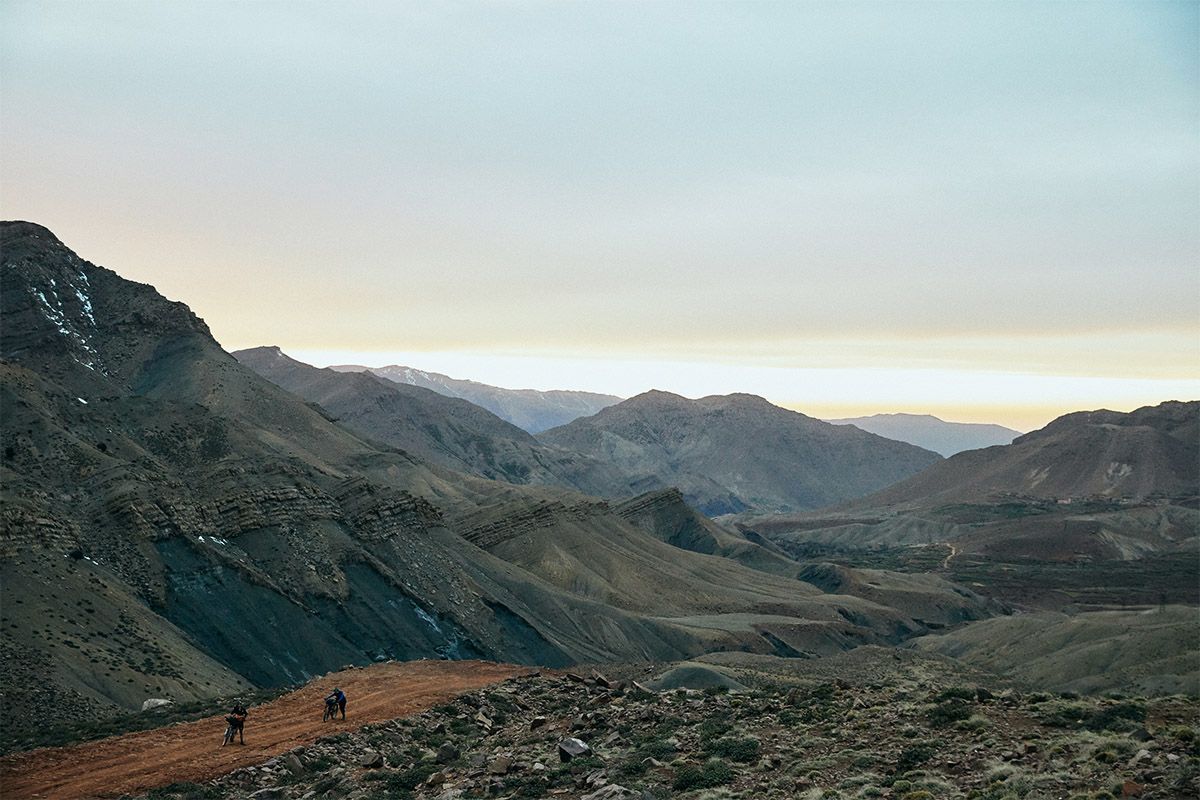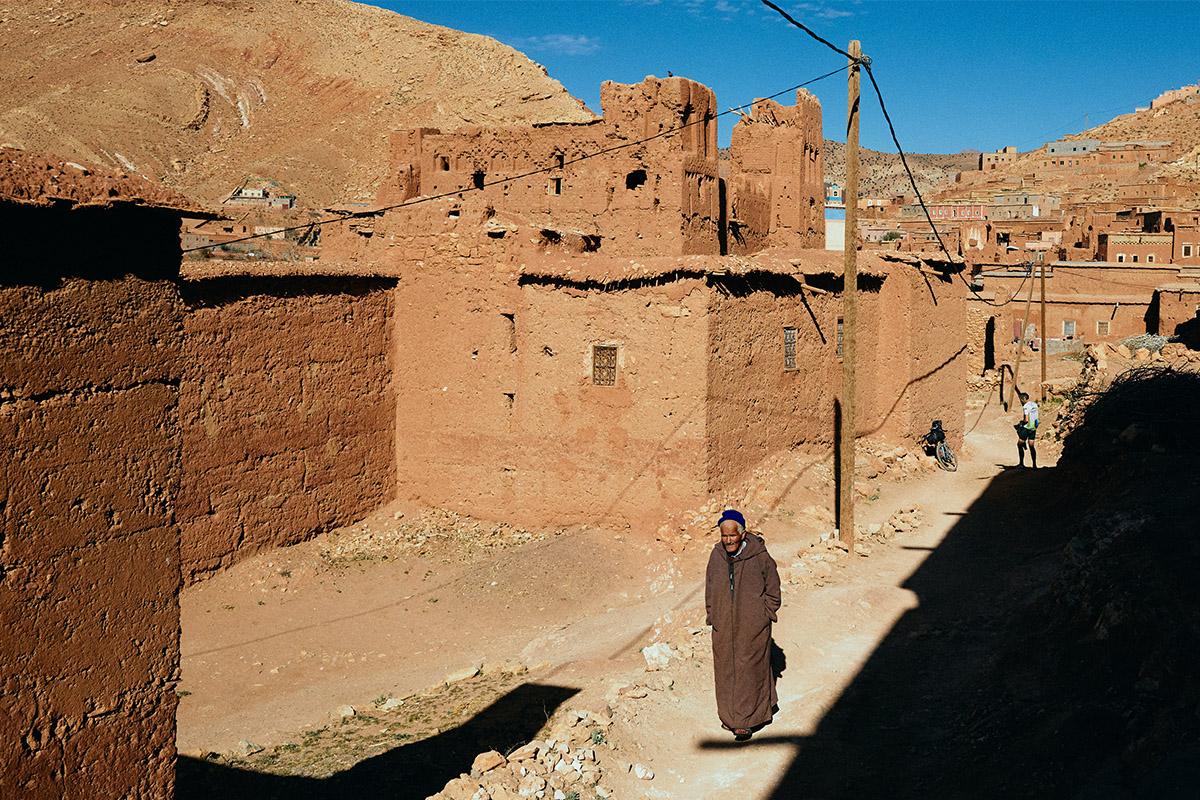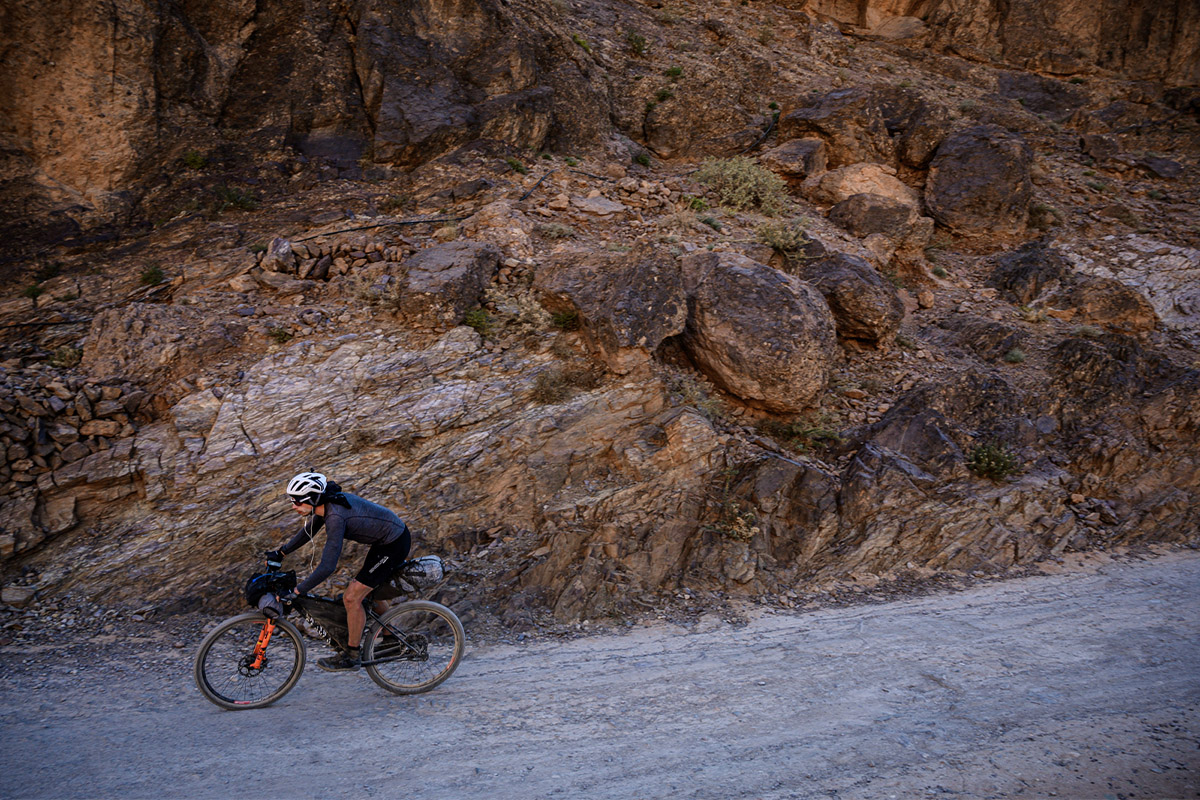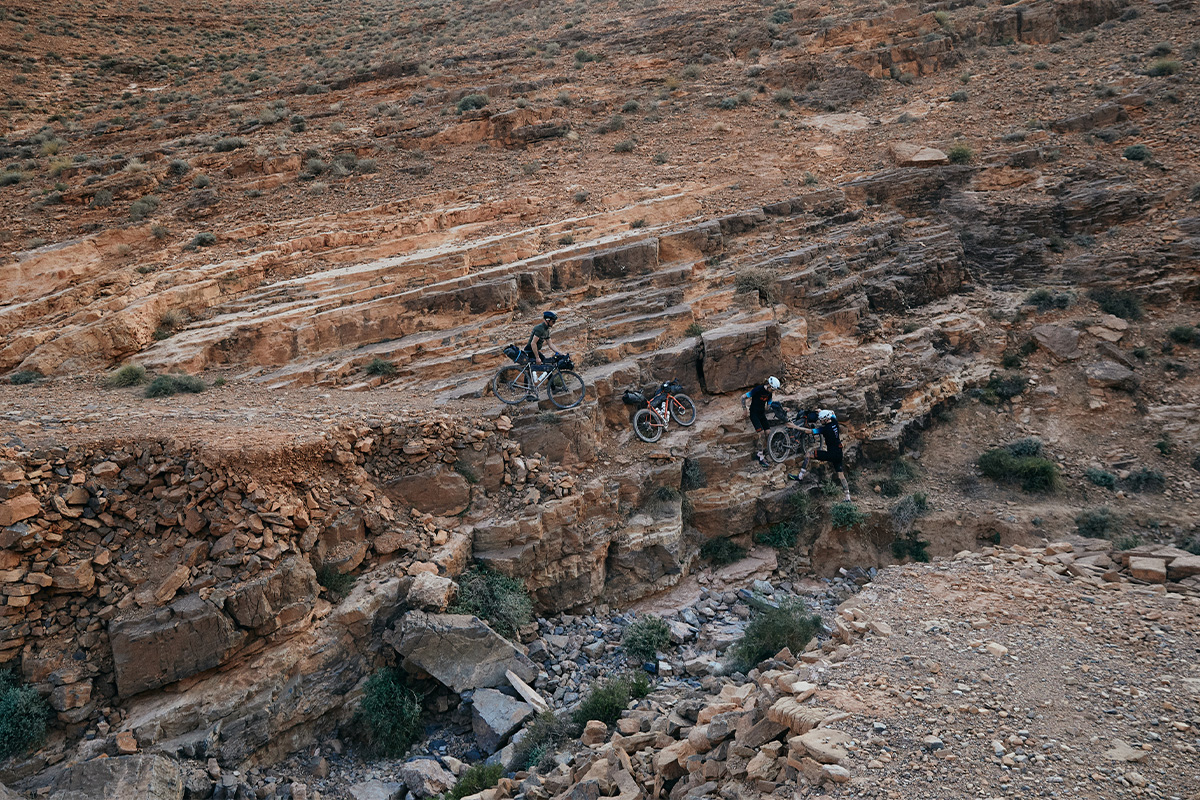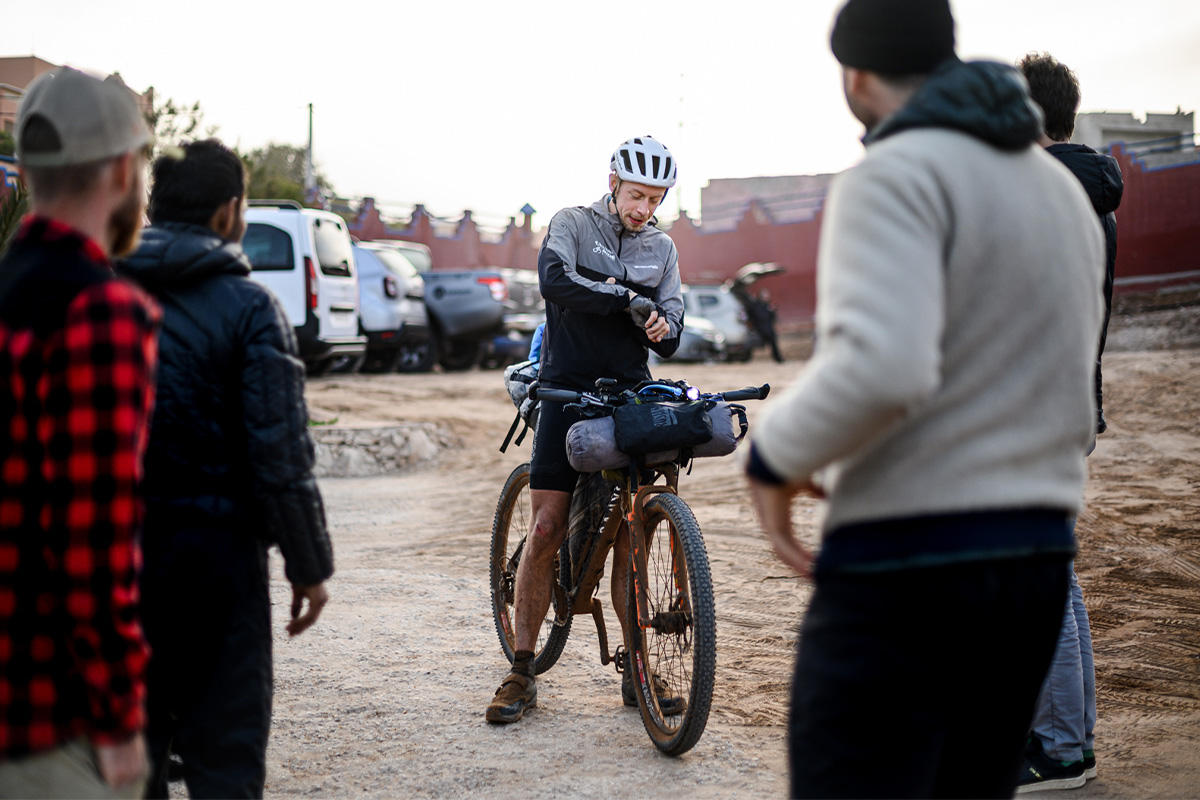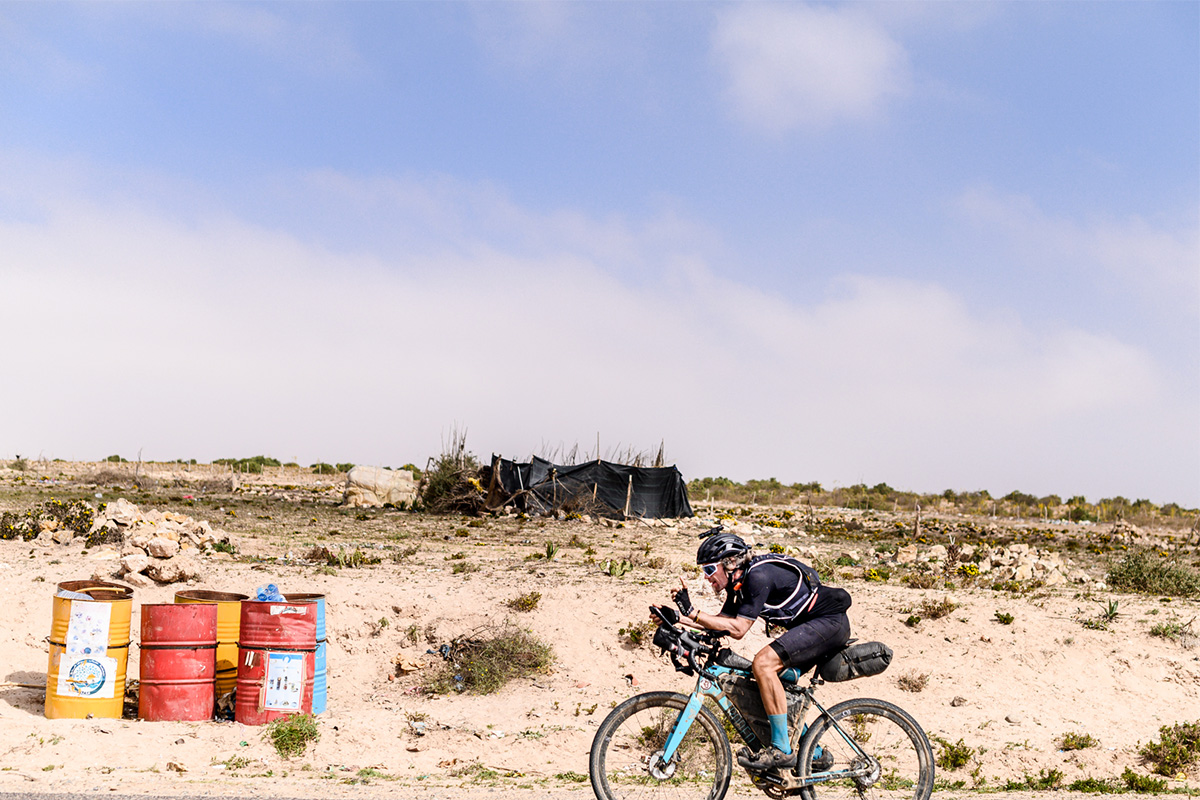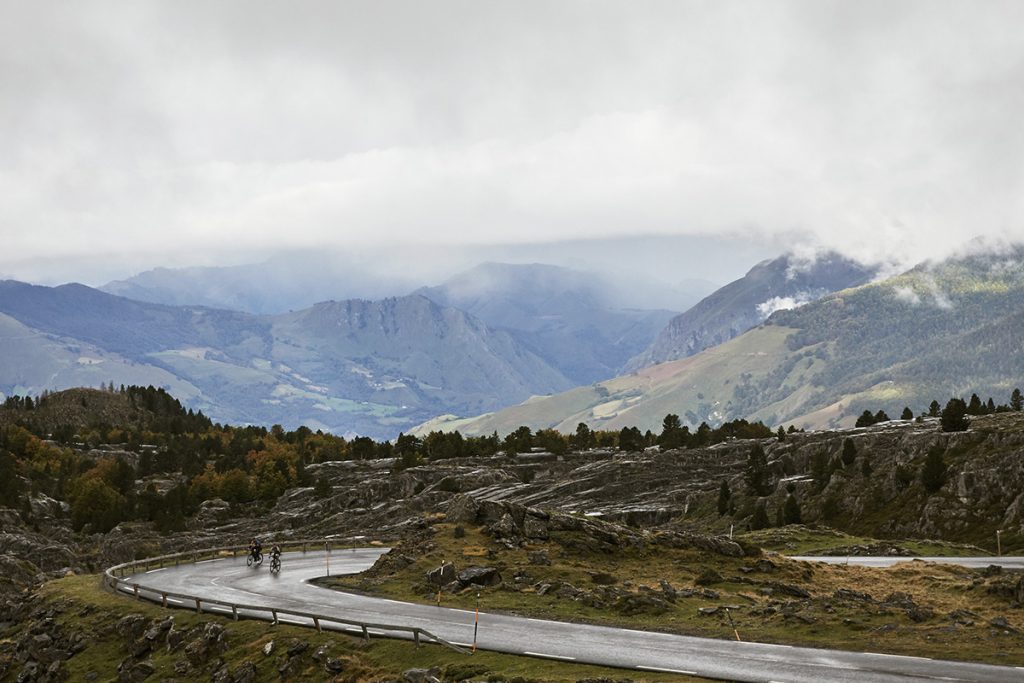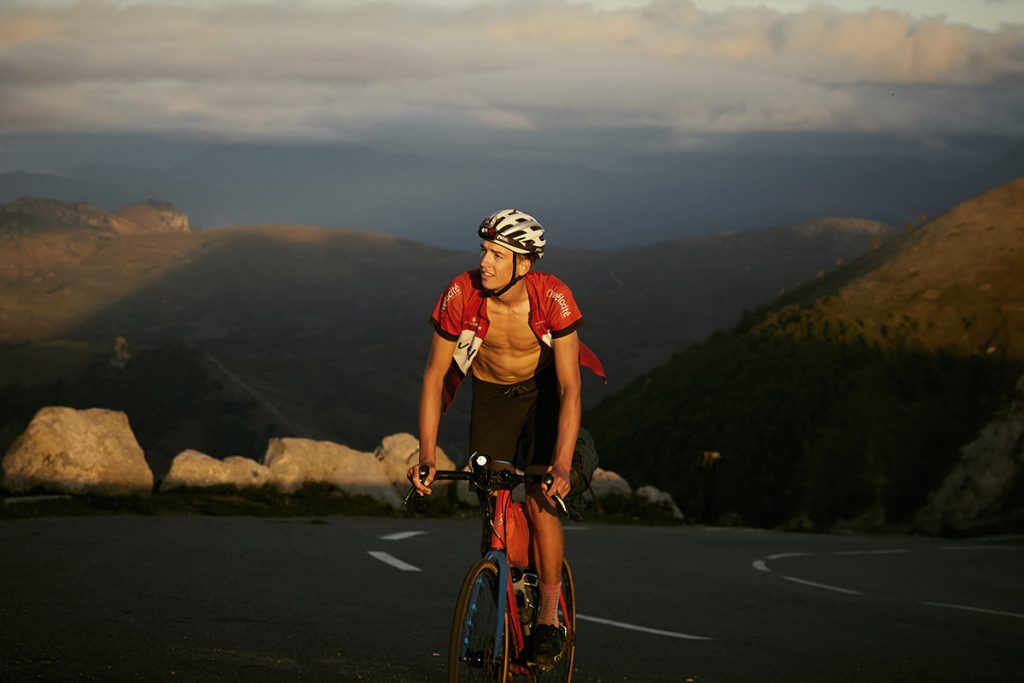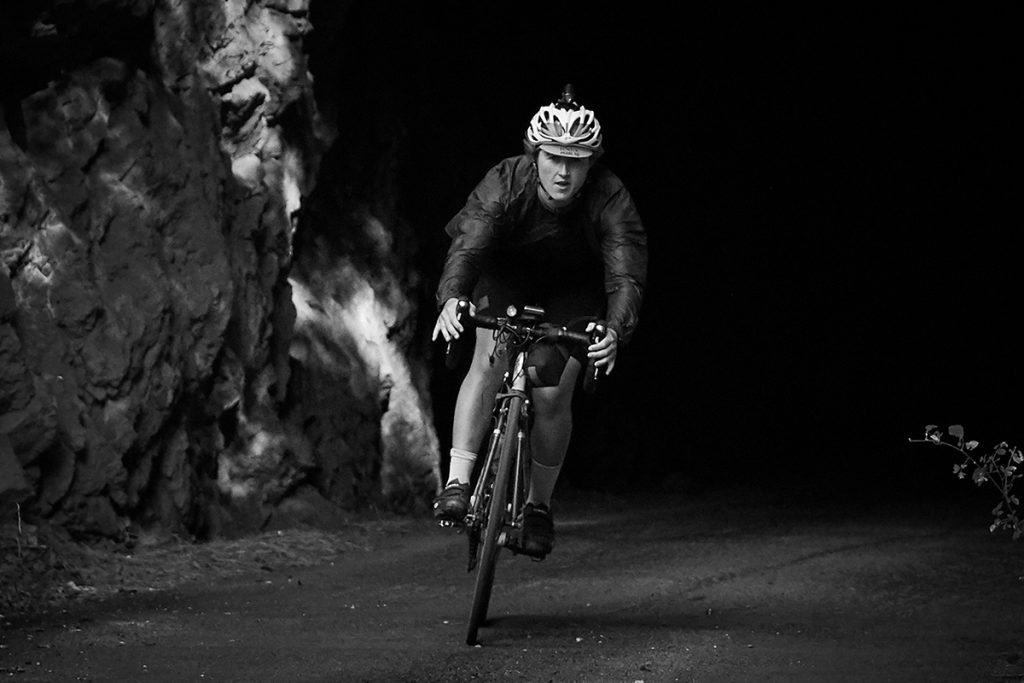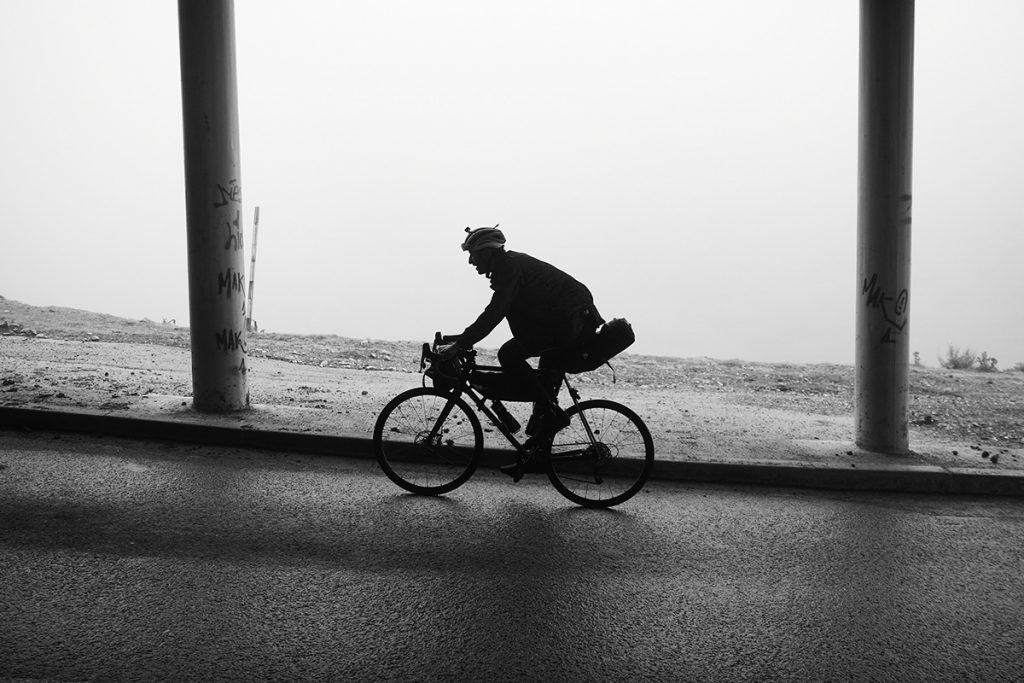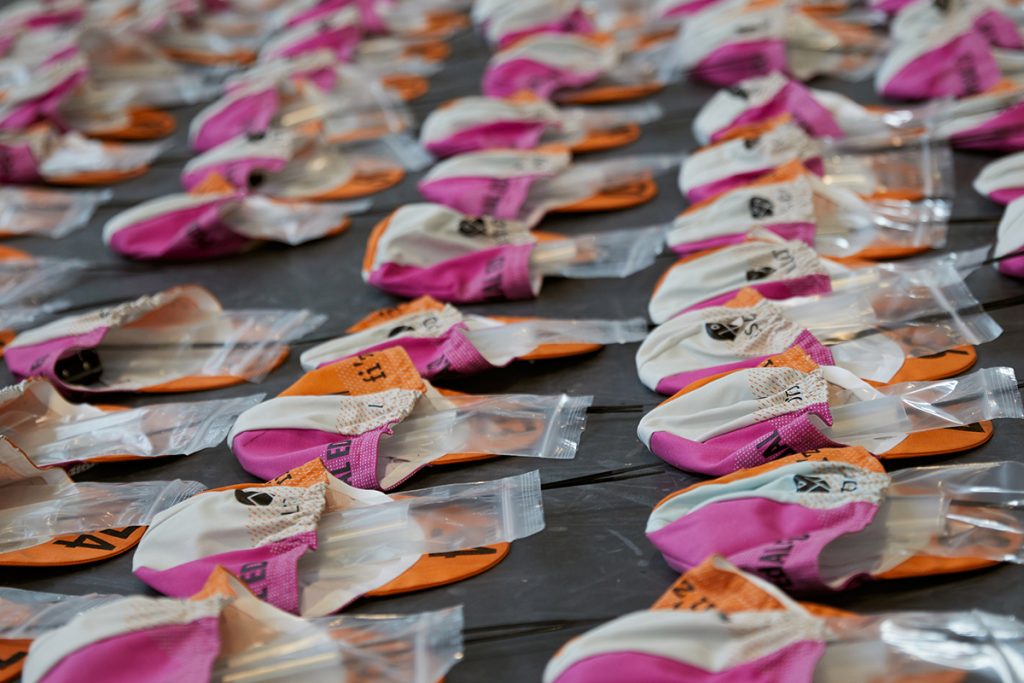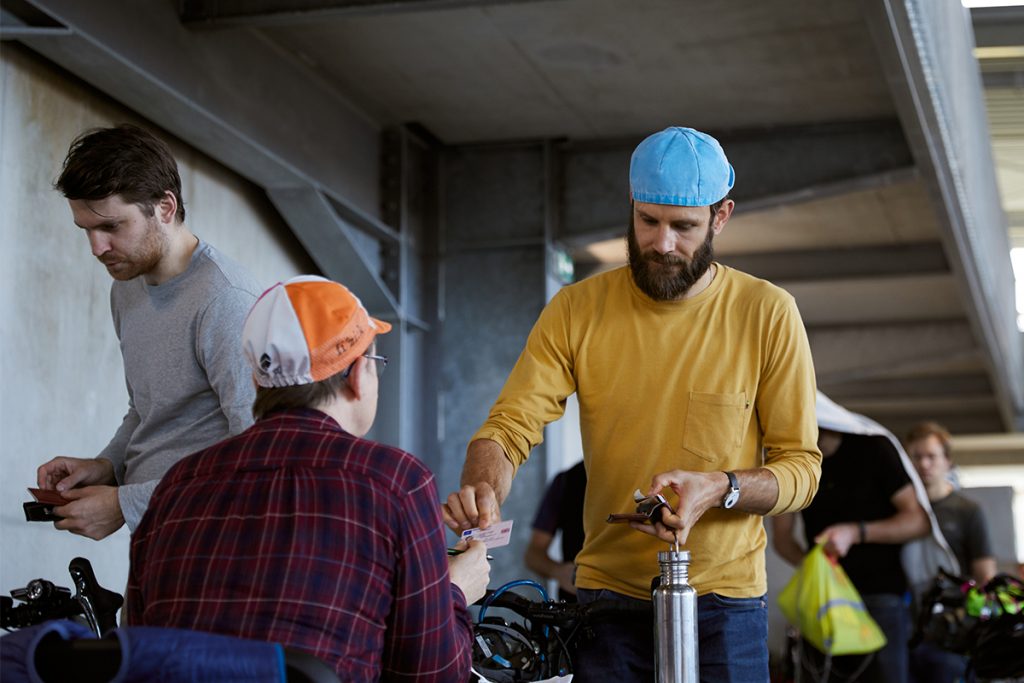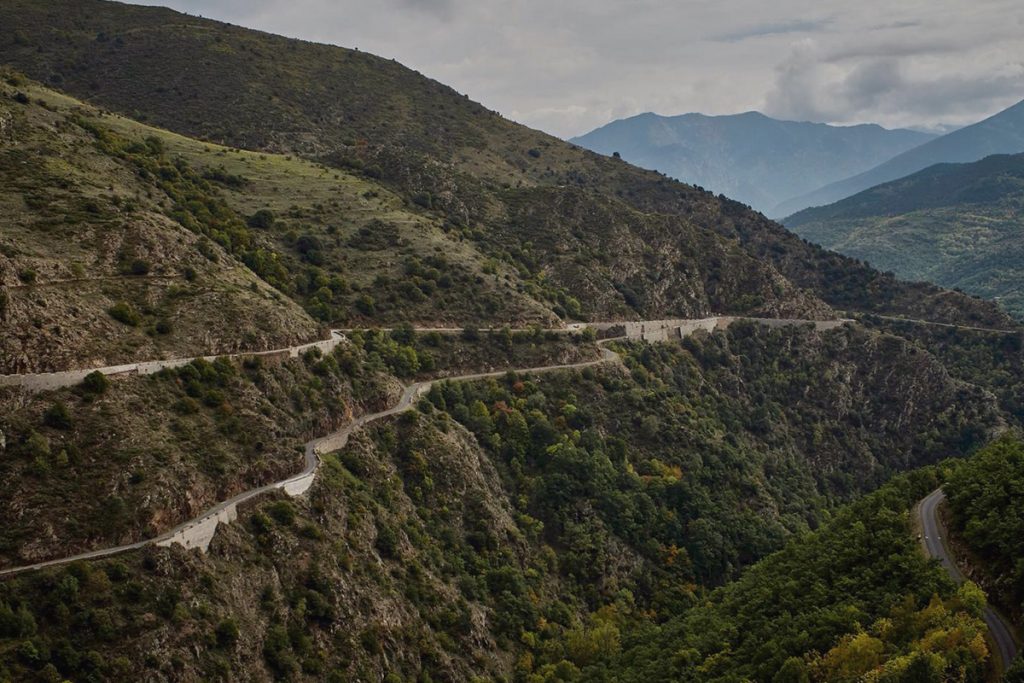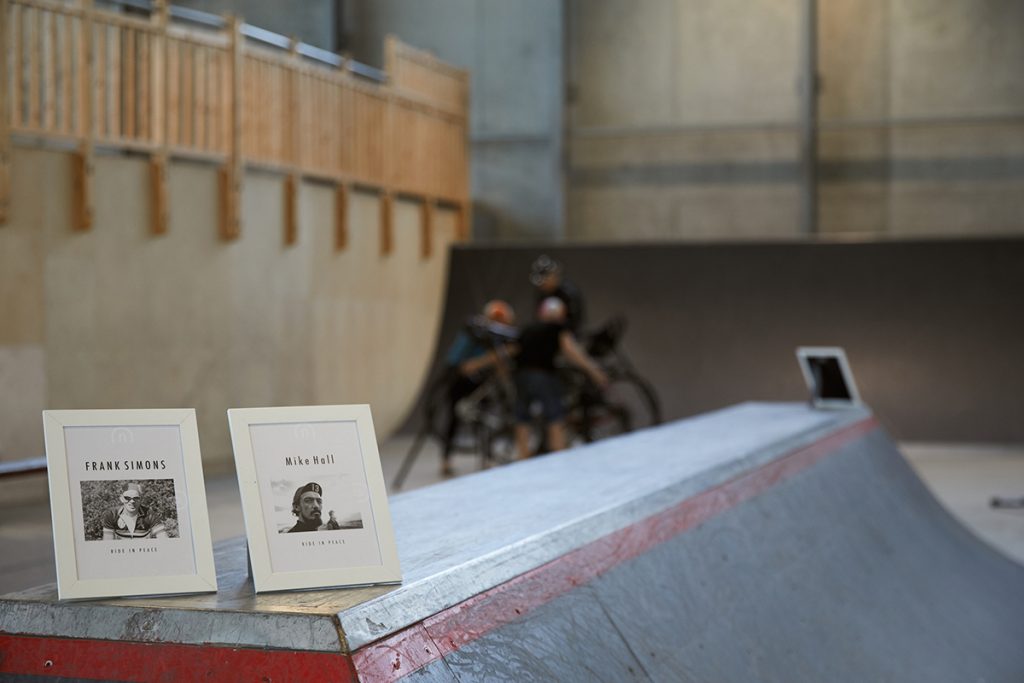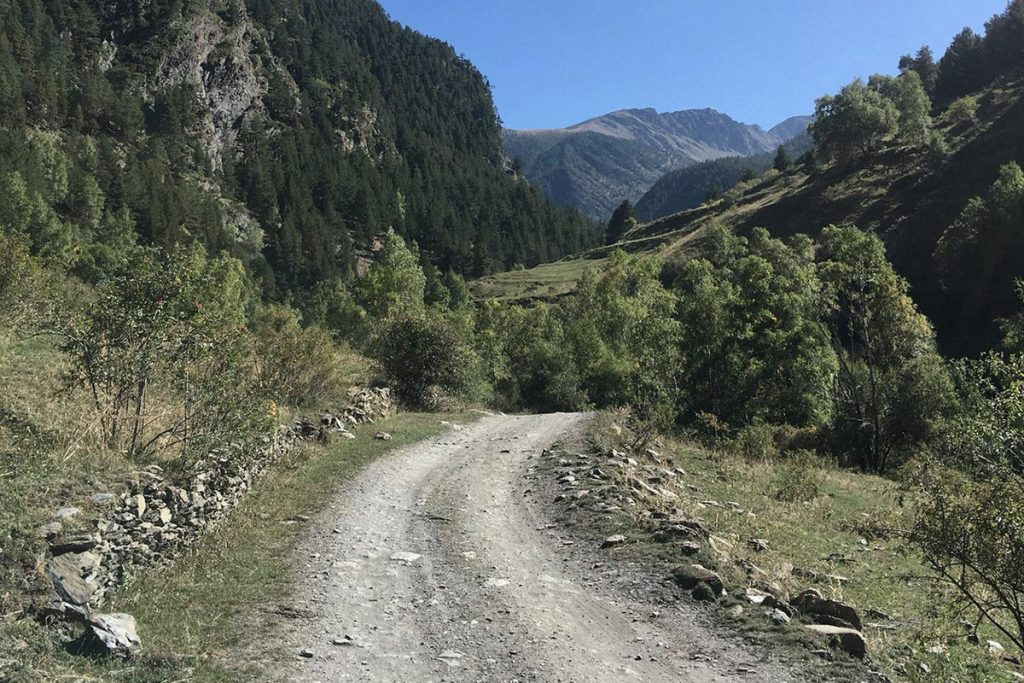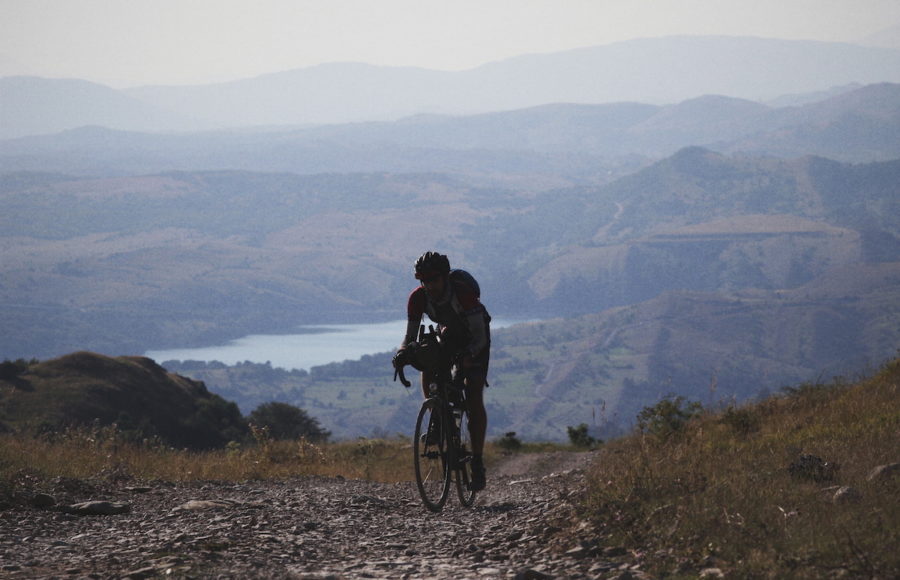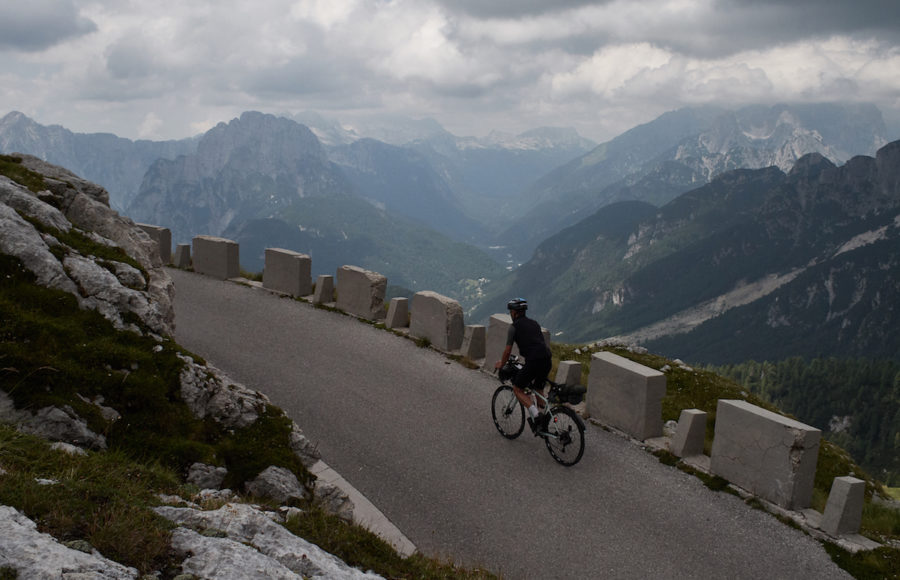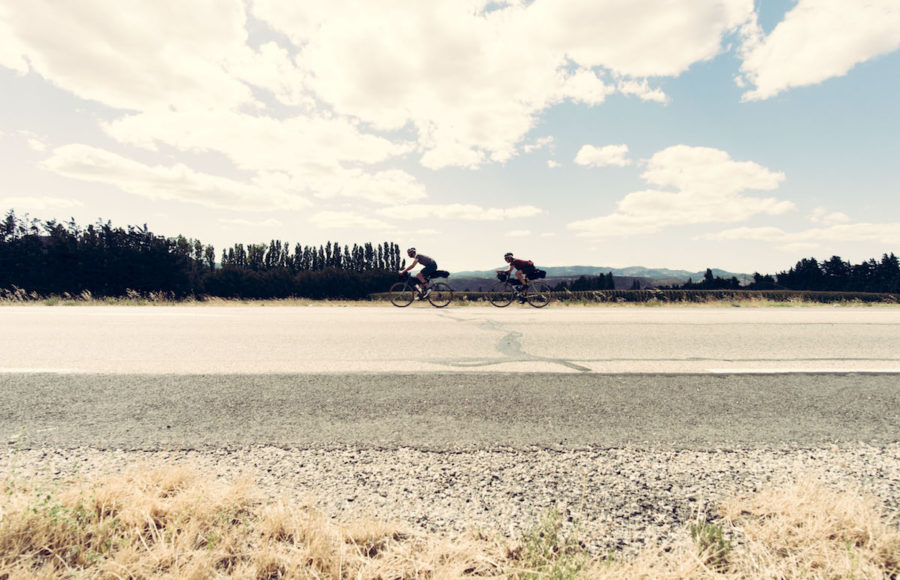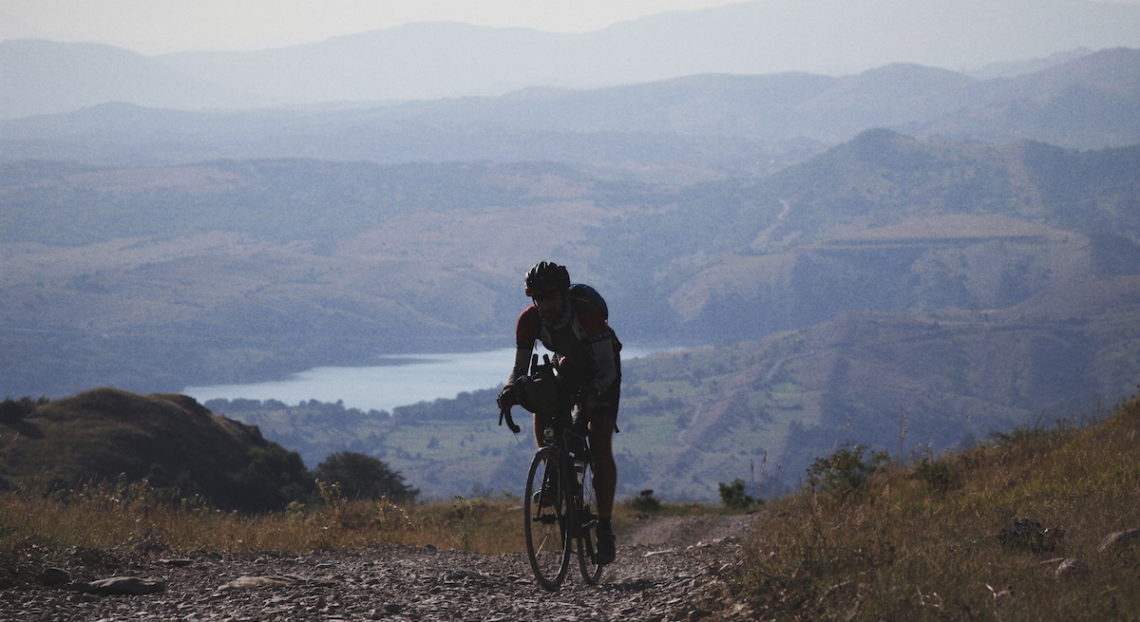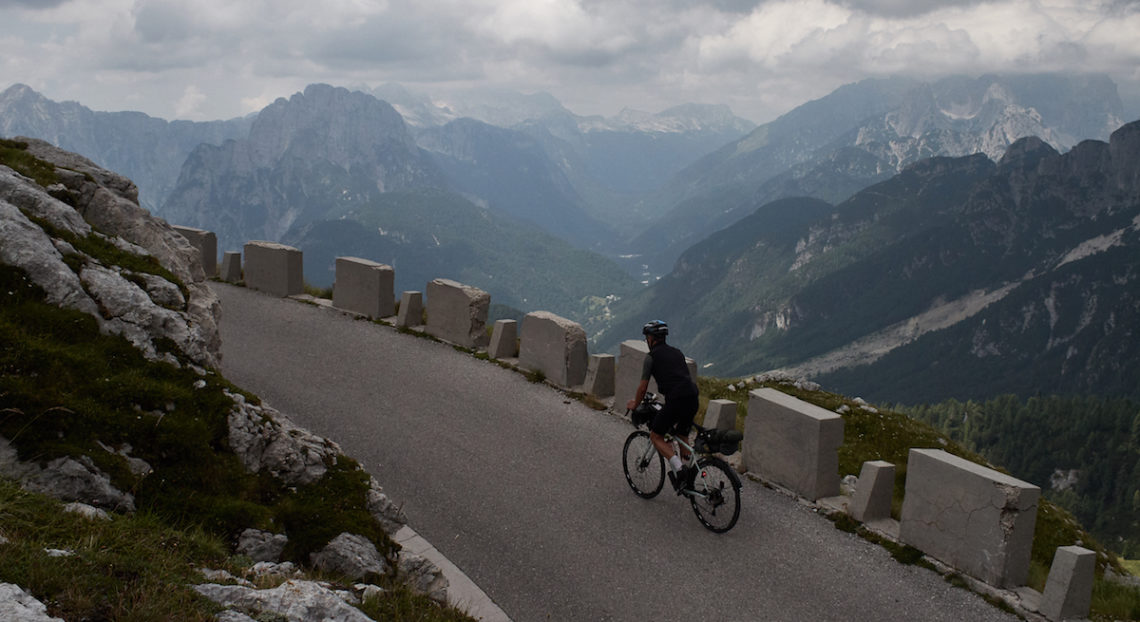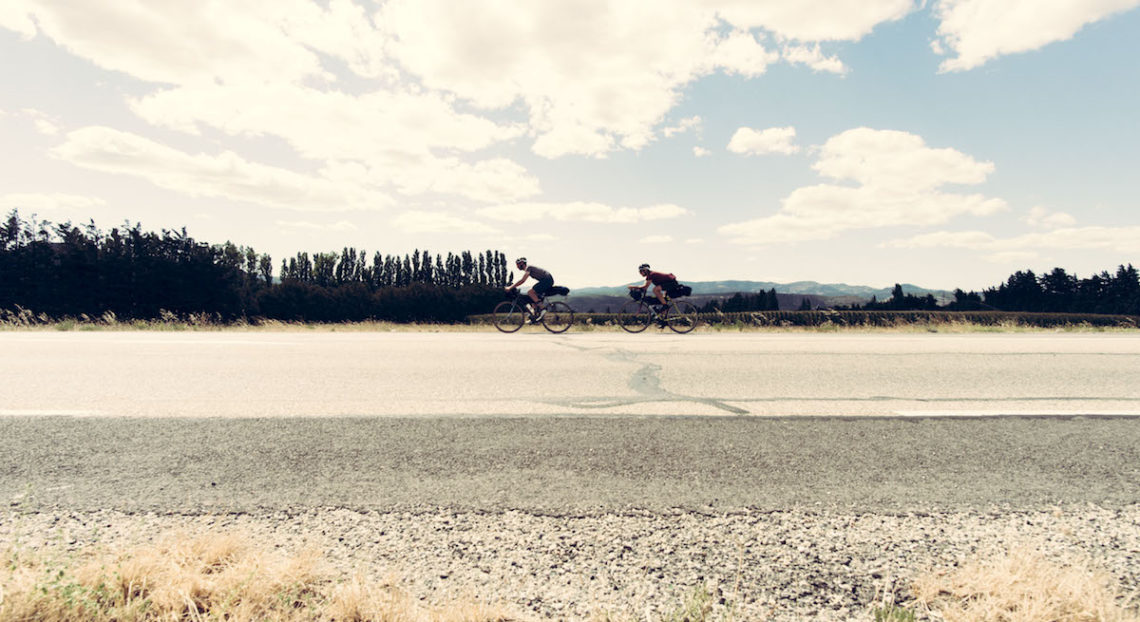In November last year I got a call from the man behind Silk Road Mountain Race, Nelson Trees, asking me if I would like to photograph the first edition of the Pedaled Atlas Mountain Race. I jumped at the chance, as the Atlas Mountains have been on my radar for a few years now and someplace I would like to ride (and photograph) myself. There’s just something mystical about the deserts of Northern Africa. Or perhaps the curiosity of the race tapped into my imagination from books I read as a boy. It’s also like nowhere else I’ve ever photographed before: a unique combination of stark mountains and arid deserts alongside a vibrant culture that’s totally unfamiliar to me. This was to be the second ultra-distance bike race I’ve documented, having gotten my first taste in last years’ Trans Pyrenees. I figured at the time it wouldn’t be too much different, Or so I thought. Once I arrived, the heat I was just about right, but the roads… not so much! Those who know Nelson however, knew what to expect and showed up with mountain bikes with 50mm tires… Straight from the get-go even our trusty Fiat 4×4 was tested by the technical terrain, with many sections not accessible to us due to the deep sand, impossibly steep, rock-strewn tracks (really only fit for shepherds and their goats), river crossings and old, weathered, colonial-era roads. This forced the riders to dismount countless times and find alternative ‘hike a bike’ routes while we searched for detours. This terrain took its toll on the riders, and their bikes, with 69 having to scratch – some due to sickness but many down to mechanical problems. But not only the round 120 riders that finished the race got to see the beauty that Morocco’s Atlas Mountains have to offer, with huge canyons that would rival even Arizona’s Grand Canyon, and vast mountain ranges with ever-changing geology, the scent of wild rosemary and thyme growing at the roadside, and beautiful Oases with palm and cherry trees scattered along the route that I’m sure several riders even thought were a mirage. Sofiane Sehili won in just under 4 days (with only about 2hrs sleep) followed by fizik riders James Hayden and Jay Petervary in 2nd and 3rd, respectively. So after that, most of the riders were in a race against the course, trying to finish each segment within the time cuts. Some riders at the back took a more leisurely approach, “bivvying” 6-8hrs at the roadside. We caught one such rider who cooked each night, and brewed himself coffee every morning. We had our own experience when we came across a group of elders, who had blocked the road and our passage through their village in the middle of the mountains. To make up for the inconvenience, they invited us for a feast of lamb, chicken and beef and refused to take ‘no’ for an answer. They then came down to the roadside to cheer on the riders as they passed through, an experience I’ll never forget. Words: Jonathan Hines Photos: @jonnyhinesphoto, @saltlake_lian, @nils_laengner The Trans Pyrenees Race is a self-supported, 1,500-km ultra-endurance cycling race traversing some of Europe’s hardest mountain passes, from Biarritz, in southern France, to Spain’s most easterly point, Cap de Creus, and back again. Along the way, riders must stamp their brevet cards at three control points and complete six parcours—but aside from that, everything else is fair game. They plan their own routes and work out food and water stops, sleeping as much or as little as possible. The result is a scattering of riders across a vast distance of harsh, unforgiving terrain—a separate challenge remains for those documenting the race. The Trans Pyrenees Race goes beyond competition. Most aren’t racing for a top-ten finish, but a personal test of endurance—and a deeply intimate one at that. This unique aspect drove me to want to capture racers in their most vulnerable moments, as they passed through a timeless landscape in trying conditions, leaving their small mark on the history of the vast and permanent Pyrenees. As it turns out, if you want to win this race, it means you have to run on next to no sleep—which, in turn, meant the same for us who were sent to photograph it. Matteo from PEdALED joined me in the media vehicle. We’ve been friends for a few years, which is important when you’re together for eighteen hours a day, six days straight. Each night we would check the riders’ locations before turning in, and we’d check them again before setting off to scout a location to shoot at sunrise. Sleep deprivation is a funny thing. Everyone just seems to kind of get into the swing of it. You fight through the tiredness until you reach a sort of high that you try and ride out as long as possible. Riders would sing and mutter to themselves as we passed them in the van—both us and them trying to stay awake and focused on the task at hand. We were in a small café halfway up the Col du Tourmalet when Thomas Jacquelinet crossed the finish line in Biarritz, some 270 km (and scores of mountain passes) west of us, becoming the TPR’s inaugural winner in a blistering 4 days, 7 hours and 48 minutes. And whilst Thomas was probably enjoying a demi and relieving his saddle sores in the Bay of Biscay, other riders had just reached the halfway point and were only starting their return journey back towards the Atlantic. For many, it would take a further four days to finish. As a spectator and a rider that has often toyed with the idea of doing a race like this, what I’ve found most interesting is that the winner is often not physically the strongest rider. Instead, it’s the rider with a clear understanding of their own physical and mental limits, one with the best combination of meticulous route planning, the required strength and endurance, and perhaps most importantly, be it in a barn or at a bus stop, the ability to function on minimal sleep. Of course, an ounce of luck doesn’t hurt either. Days after setting out from Biarritz on Friday 4th October, its opulent casinos, the sweeping cliffs, late-season surf dudes and elegant cafés will be just a blur for the first riders who return at the end of the very first Trans Pyrenees self-supported ultra distance bike race. Instead, the luxurious start/finish location will become a scene of crumpled cyclists and dusty bikes, of broad grins of elation crossed with exhaustion, and immense pride tinged with relief. We are the proud main sponsors of the inaugural Trans Pyrenees Race: a 1500km test across some of Europe’s most beautiful yet brutal climbs. There will be thousands of meters of climbing and, like the more established Transcontinental Race – this summer’s seventh edition won sensationally by debutant Fiona Kolbinger – it’s a mixture of control points, some control parcours sections and the rest being whatever routes the riders choose to take though the most spectacular and remote scenery in the Pyrenees. The event is produced by Lost Dot, the team behind the Transcontinental Race, and based on a plan devised by the late Mike Hall. The familiar rules apply: with no external assistance allowed, the challenge of the riding itself is magnified by other demands including navigation, carrying kit, bike maintenance, lack of sleep, fueling, weather and more. There are 109 solo riders from right across Europe due to depart on Friday 4th, along with 14 set to ride in pairs from the Bay of Biscay on the west coast of France to the tip of the Cap de Creus peninsula in the Balearic Sea – on the Spanish side of the border, as much of the route will be – and back again. The fastest could finish in a long weekend, and the event stays open until Friday 11th October. All of them, just as Kolbinger and the other riders did in the Transcontinental Race, will have their brevet cards stamped at the control points which include the Spanish Pyrenean town of Ansó, on the Veral river; the Port de Cabús mountain pass on the Spain-Andorra border; and the Catalonian Cap de Creus headland. The return route is via the unforgiving cols: d’Aubisque, the Tourmalet and d’Aspin, following the route of the famous Le Raid Pyrénéen Randonneur. We’ll follow the riders’ progress via their GPS trackers and look forward to hearing about their adventures back in Biarritz. Photographs: Camille McMillan, Jonathan Hines We are happy to announce our partnership with the 2019 Transcontinental Race, starting July in Bulgaria, and the all-new Trans Pyrenees Race, starting at the Bay of Biscay in October! Transcontinental Race The Transcontinental Race is an ultra-distance endurance cycle race across Europe, competed every year by a select group of self-supported riders. It is widely regarded as one of the world’s toughest endurance cycle races. Competitors in the Transcontinental Race do not follow a set course for the entire route: there are fixed start and end points with mandatory control points along the way. All travel must be by bike and riders must work out their own optimum route between the controls, planning their own strategy of riding, sleeping and refueling, and carry all their own equipment such as clothing and spares – they can buy food and drink – along the way. The previous six editions have started in either the UK or Belgium to finish, anywhere between seven and ten days later, in Greece or Turkey. They have each featured between 3,000 and 4,000km distance with between 30,000 and 45,000m total ascent. The 2019 route is flipped, as the seventh edition starts in Burgas, Bulgaria on 26/27 July and runs East-West, to finish in Brest, France. Transcontinental and Trans Pyrenees Race are a tribute to the late Mike Hall, an exceptional endurance athlete and founder of the Transcontinental Race. Mike was involved in a fatal accident in March 2017 and it’s testament to his irrepressibly positive spirit that he remains a huge inspiration to the endurance racing community. Preparations for the 2019 will now start in earnest as the riders discover this week whether they have been successful in their applications to ride. Trans Pyrenees Race A new event created by Lost Dot, the organizers of The Transcontinental Race, is the Trans Pyrenees Race. Sharing the same principles as the original event, the first edition of the Trans Pyrenees Race – starting 4th October 2019 – is self-supported endurance riding over a shorter distance but with highly challenging climbing packed into its 1500km total distance. Its route will take participants from the Bay of Biscay through the beautiful yet punishing scenery of the Pyrenees to the Cap de Creus and back again.